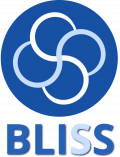Objectives

The main objective of the BLISS initiative is to increase the efficiency and resiliency of the HEI and at the same time provide a more accessible and flexible learning experience for the students. This will require the analysis and use of BL and it will produce a twofold contribution:
- Design and implementation of specific educational units to be included in engineering curricula. These will be based on the state-of-the-art in the pedagogic field of blended learning. This activity will also leverage the recent experience of the consortium during the Covid-19 pandemic when HEI across the world were forced to increase their use of distance learning approaches.
- Provide a methodological support to rational implementation of blended learning strategies in HE curricula targeting an increase of efficiency and resiliency for the underlying educational systems as well as improved accessibility for the students.
Key actions
The BLISS initiative (Blended Learning Implementation for reSilient, acceSsible and efficient higher education) is set to address the challenges emerged during the pandemic by proposing a BL based set of ready to use educational units and a related methodological framework for learning. The proposed research objectives will be pursued through the following five phases.
- Analysis of the response to Covid-19 of the involved organizations, through analysis of the documentation from internal evaluation processes, as well as an aptly designed survey, to highlight information on the adoption of online based approach, used IT tools, student learning experience, additional workload for HEI staff and related future plan.
- Analysis of the available literature in BL to contextualize the Covid-19 experience and suggest a novel view by highlighting and structuring the use of successful emerged patterns. The literature will be also complemented by a specific Learning teaching and training (LTT) activity about BL hosted by the Royal Institute of Technology.
- Classification of the activities in current engineering curricula according to potential application of BL approach and selection of the most promising one for development. In this phase the “lesson learned” during the Covid-19 pandemic will have a pivotal role: the consortium will look at the impact of different balances of on-line and face-to-face activities on the results observed. This will highlight the successful cases and expose needed improvements, allowing to select candidates for the next phase.
- Development of the selected educational units using BL approaches, performed through a pedagogical approach based on the constructive theory on learning. The focus will be on the learner experience and the description will follow the alignment of the intended learning outcomes with the teaching and learning activities and the assessment task.
- Implementation of the developed activity, evaluation and improvement based on learners’ feedback. The educational unit will be run at a host institution as a stand-alone course or part of a larger course. The student experience will be evaluated through standard Learning Experience Questionnaire (LEQ) and compared with traditional learning approaches. This phase will also include an internal LTT workshop where the single educational units will be presented by the institution that has developed them and made available for further use at the other participating institutions.
